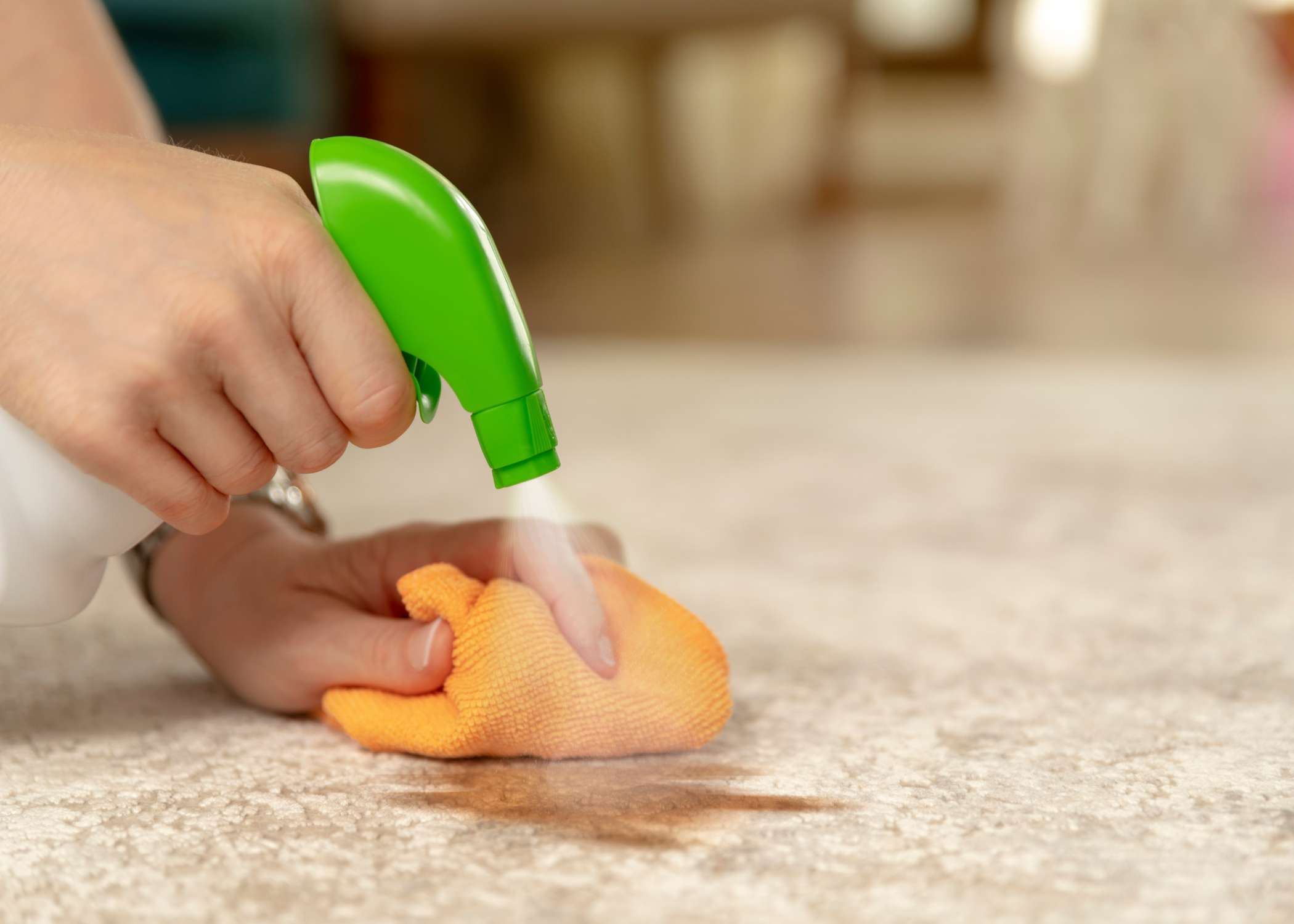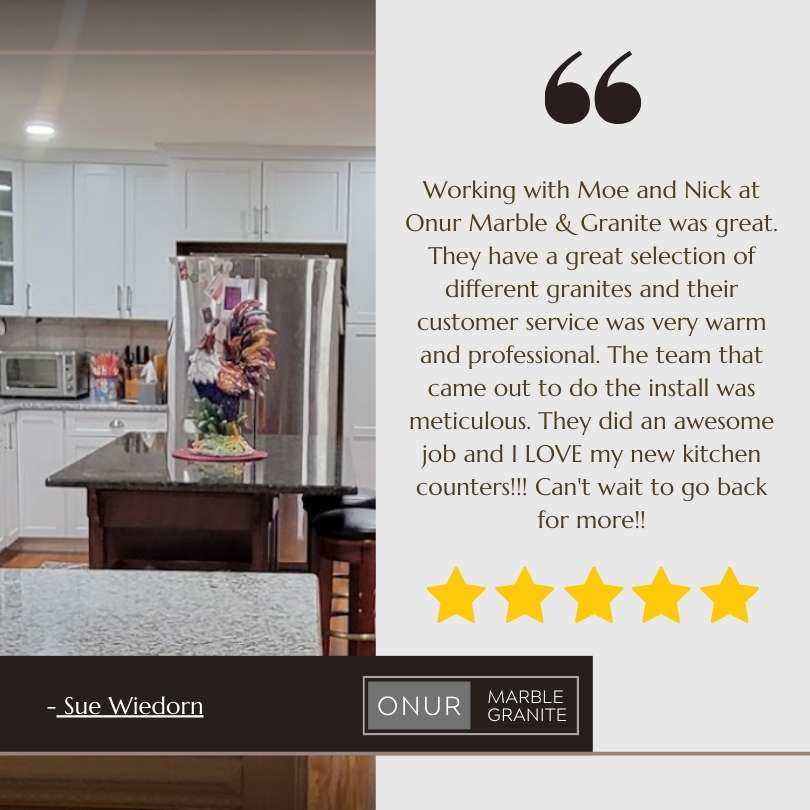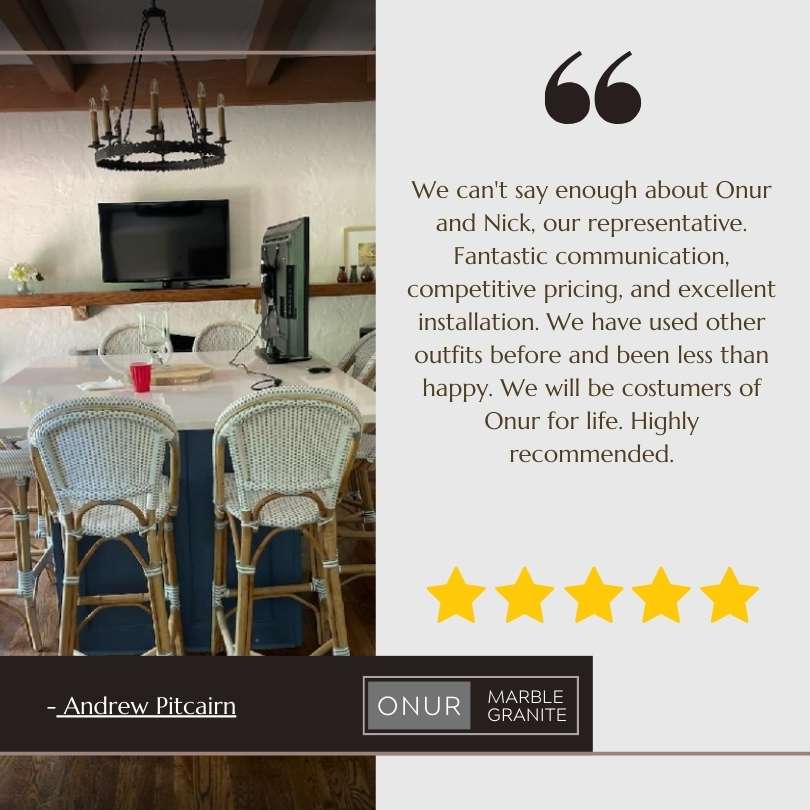Granite countertops are a popular choice for kitchens and bathrooms due to their durability and natural beauty. However, over time, stains may occur, marring the appearance of the granite. In this article, we will explore how to effectively remove stains from granite countertops, as well as provide tips on preventing future stains.
Understanding the Nature of Granite
Before we delve into stain removal techniques, it’s important to understand the nature of granite. Granite is a natural stone that is formed under intense heat and pressure. Its unique composition gives it a beautiful and varied pattern, making each countertop a one-of-a-kind piece.
Granite is an igneous rock, meaning it is formed from the cooling and solidification of magma or lava. This process takes millions of years, resulting in a stone that is incredibly hard and durable. The mineral composition of granite typically includes quartz, feldspar, and mica, which contribute to its unique color variations and patterns.
The Porous Nature of Granite
Although granite is known for its durability, it is also a porous material. This means that liquids and substances can penetrate its surface if not properly sealed. This porosity makes the granite more vulnerable to staining.
When granite is quarried and cut into slabs for countertops, the surface is often treated with a sealant to help reduce its porosity. However, over time, this sealant can wear off, leaving the granite susceptible to stains. It’s important to regularly reseal your granite countertops to maintain their beauty and protect them from damage.
How Stains Occur on Granite Countertops
Stains on granite countertops can occur due to various reasons. Common culprits include spills of food and beverages, oils, cosmetics, and other substances. If left untreated, these stains can seep into the pores of the granite, making them difficult to remove.
It’s essential to clean up spills on granite countertops promptly to prevent staining. Using a mild dish soap and warm water is usually sufficient for daily cleaning. For tougher stains, specialized granite cleaners or poultices may be necessary to draw out the stain from the stone. Regular maintenance and proper care can help preserve the beauty and longevity of your granite countertops for years to come.
Types of Stains on Granite Countertops
Granite countertops can fall victim to various types of stains, each requiring a specific approach for effective removal. By identifying the nature of the stain, you can better equip yourself to tackle the blemish head-on and restore the pristine look of your countertop.
When it comes to organic stains, the culprits are often everyday items like spilled coffee, wine, or even remnants of fruits and vegetables. These stains can seep into the porous surface of the granite, leaving behind stubborn marks that require thorough cleaning and possibly the use of specialized cleaning agents.
Organic Stains
Organic stains on granite countertops are caused by substances such as food, beverage spills, and plant matter. These stains can leave behind unsightly marks that may require a more aggressive stain removal approach.
On the other hand, inorganic stains stem from materials like ink, paint, or chemical-based products. These stains can pose a different challenge as they may react with the granite in a way that requires gentle yet effective cleaning methods to avoid damaging the surface.
Inorganic Stains
Inorganic stains on granite countertops are typically caused by substances like ink, paint, or other non-organic materials. These stains may penetrate the granite surface and often require specialized stain removal techniques.
Oil-based stains, a common headache for many granite countertop owners, result from spills of cooking oils, greasy substances, or beauty products. The oily residue from these stains tends to cling tenaciously to the granite, necessitating persistent cleaning efforts and the use of degreasers to fully eliminate the mark.
Oil-Based Stains
Oil-based stains are another common type of stain found on granite countertops. These stains are caused by substances like cooking oil, grease, or cosmetic products. The oily nature of these stains can make them particularly stubborn to remove.
General Cleaning Tips for Granite Countertops
To maintain the beauty of your granite countertops and minimize the risk of staining, it’s crucial to follow some general cleaning tips.
Granite countertops are a popular choice for kitchens and bathrooms due to their durability and elegant appearance. However, to keep them looking their best, proper care and maintenance are essential. In addition to regular cleaning, it’s recommended to reseal granite countertops every 1 to 3 years to ensure maximum protection against stains and spills.
Daily Maintenance for Granite Countertops
Regular cleaning with mild soap and warm water is essential for maintaining the cleanliness of granite countertops. Avoid using abrasive cleaners or scrubbing pads, as they can scratch the surface. Instead, opt for a soft cloth or sponge for gentle cleaning.
In addition to cleaning, it’s also important to avoid placing hot pans directly on granite countertops, as extreme heat can cause thermal shock and potentially lead to cracks or discoloration. Using trivets or hot pads under hot cookware is a simple way to protect your granite surfaces from damage.
What Not to Use on Granite
When cleaning granite countertops, it’s important to avoid using harsh chemicals or acidic substances. These can degrade the sealant and cause discoloration or etching. Stay away from cleaners containing ammonia, vinegar, or citrus ingredients. Instead, choose pH-neutral granite cleaners specifically formulated for stone surfaces.
Furthermore, to prevent water spots on granite countertops, it’s recommended to dry the surface thoroughly after cleaning. Leaving standing water on granite can lead to mineral deposits and dull the finish over time. By following these simple cleaning tips and maintenance practices, you can ensure your granite countertops remain a stunning focal point in your home for years to come.
Step-by-Step Guide to Removing Stains from Granite
If your granite countertops have already fallen victim to stains, fret not. With the right approach and some patience, you can restore their original beauty.
Preparing the Stained Area
Before tackling the stain, clean the surrounding area with a mild granite cleaner. This prevents any residue or debris from spreading onto the stained area during the cleaning process. It’s important to ensure that the entire surface is free from any dirt or grime that could interfere with the stain removal process. Once clean, use a dry cloth or paper towel to blot away any excess moisture, creating a clean canvas for the stain removal process.
Applying the Cleaning Solution
The next step is to apply a suitable cleaning solution to the stained area of the granite countertop. For organic stains, such as coffee or wine, create a paste by mixing baking soda and water. Apply the paste to the stain, covering it completely. The baking soda acts as a gentle abrasive, helping to lift the stain from the porous surface of the granite. Leave the paste on the stain for a few minutes to allow it to absorb the stain effectively.
For oil-based stains, such as grease or cooking oil, use a gentle dish soap mixed with warm water. Apply the soapy solution to the stain and let it sit for a few minutes. The dish soap helps to break down the oil, making it easier to remove from the granite surface.
After applying the cleaning solution, gently scrub the stained area using a soft bristle brush or sponge. Take care not to apply excessive pressure, as this can damage the granite surface. The goal is to gently agitate the stain, allowing the cleaning solution to penetrate and lift it away. Rinse the area with clean water and blot dry with a soft cloth.
Rinsing and Drying the Countertop
To ensure that no residue from the cleaning solution remains on the granite surface, rinse the countertop thoroughly with warm water. This step is crucial in preventing any potential damage that could be caused by leaving cleaning agents on the granite for an extended period. Use a clean, dry cloth to remove any excess moisture and give the countertop a final wipe down. This step not only ensures that the surface is completely dry but also helps prevent water spots or streaks from forming.
By following these step-by-step instructions, you can effectively remove stains from your granite countertops and restore their natural beauty. Remember to always use gentle cleaning solutions and avoid abrasive materials that could scratch or damage the surface. With a little effort and the right approach, your granite countertops will look as good as new!
Preventing Future Stains on Granite Countertops
Prevention is key when it comes to maintaining the pristine appearance of granite countertops. By following a few simple tips, you can help keep your granite looking beautiful for years to come.
Sealing Granite Countertops
Regularly sealing granite countertops is vital to protect them from stains and moisture penetration. A high-quality granite sealer will create an invisible barrier on the surface of the granite, preventing liquids from seeping into the pores. The frequency of sealing will depend on the type of granite and the amount of use it receives. Consult with a professional or refer to the manufacturer’s instructions for guidance on the best sealing schedule.
Quick Action on Spills
To minimize the chances of stains setting on granite countertops, it’s crucial to act fast when spills occur. Wipe up any spills immediately, making sure to blot the area rather than rubbing. Gentle blotting helps prevent the spread of the spill and reduces the risk of staining.
By following these guidelines, you can effectively remove stains from granite countertops and maintain their beauty for years to come. Remember to be gentle with your granite, as it is a natural stone that requires proper care. With a little bit of effort and the right techniques, your granite countertops will continue to be a stunning focal point in your home.
If you’re looking to enhance your home with stunning granite countertops or need professional assistance in maintaining their pristine condition, look no further than Onur Marble and Granite. As the premier stone countertop company in Bucks County, PA, and the greater Philadelphia area, we’re dedicated to providing top-notch service and expertise. Visit us at our showrooms in Fairless Hills or West Chester for a free design consultation and discover our interest-free financing options for qualified buyers. Don’t let stains diminish the beauty of your granite surfaces—contact us today for a free design consultation and let us help you keep your countertops looking flawless.








